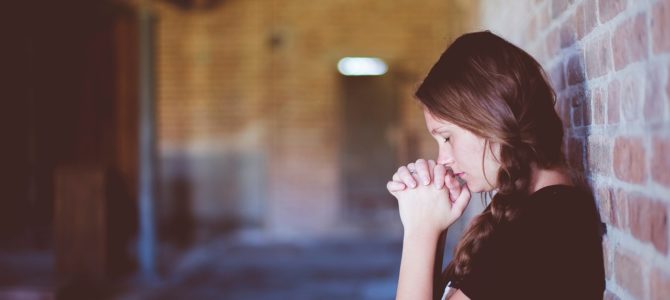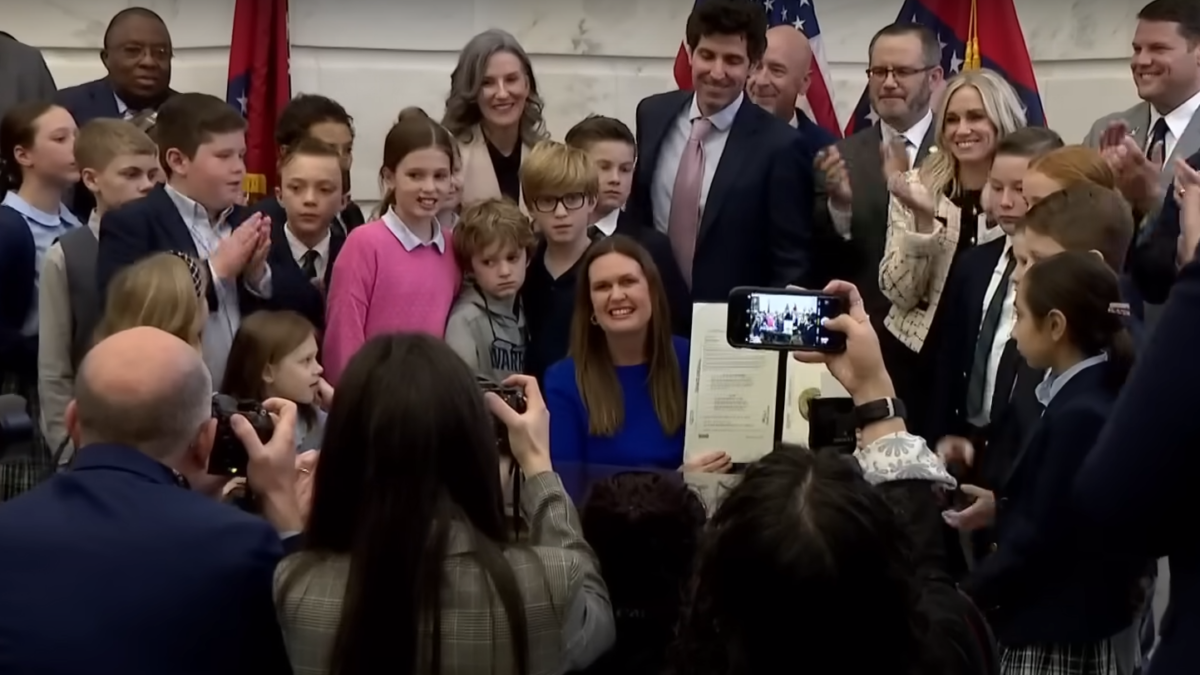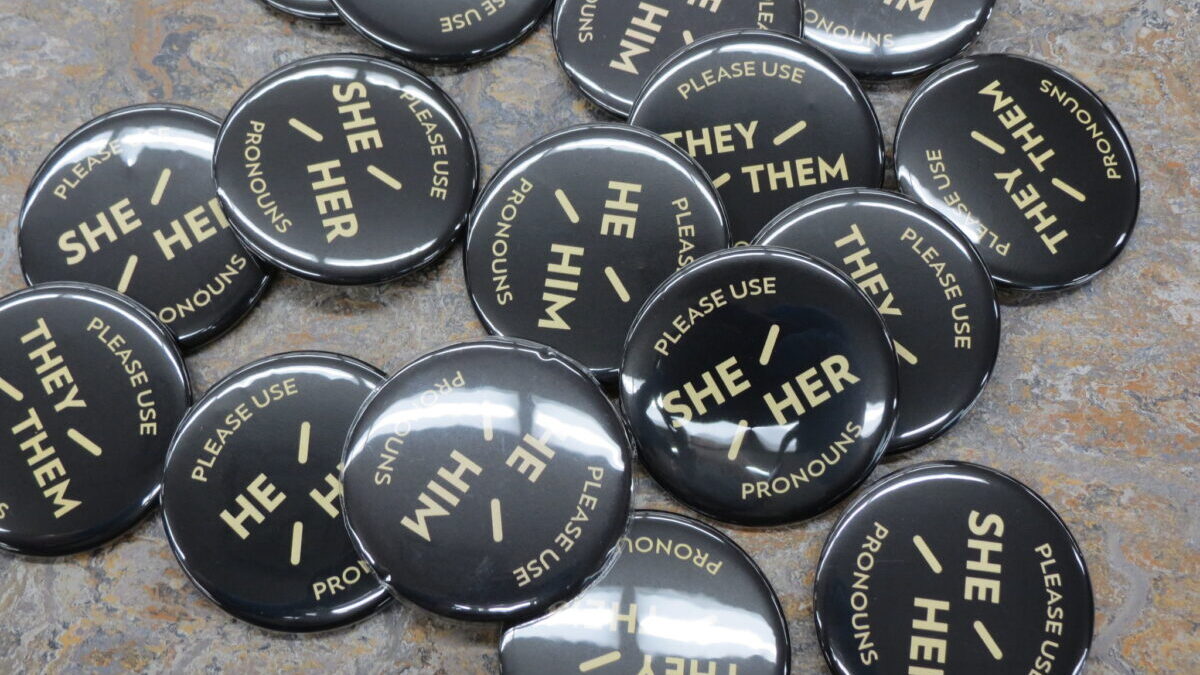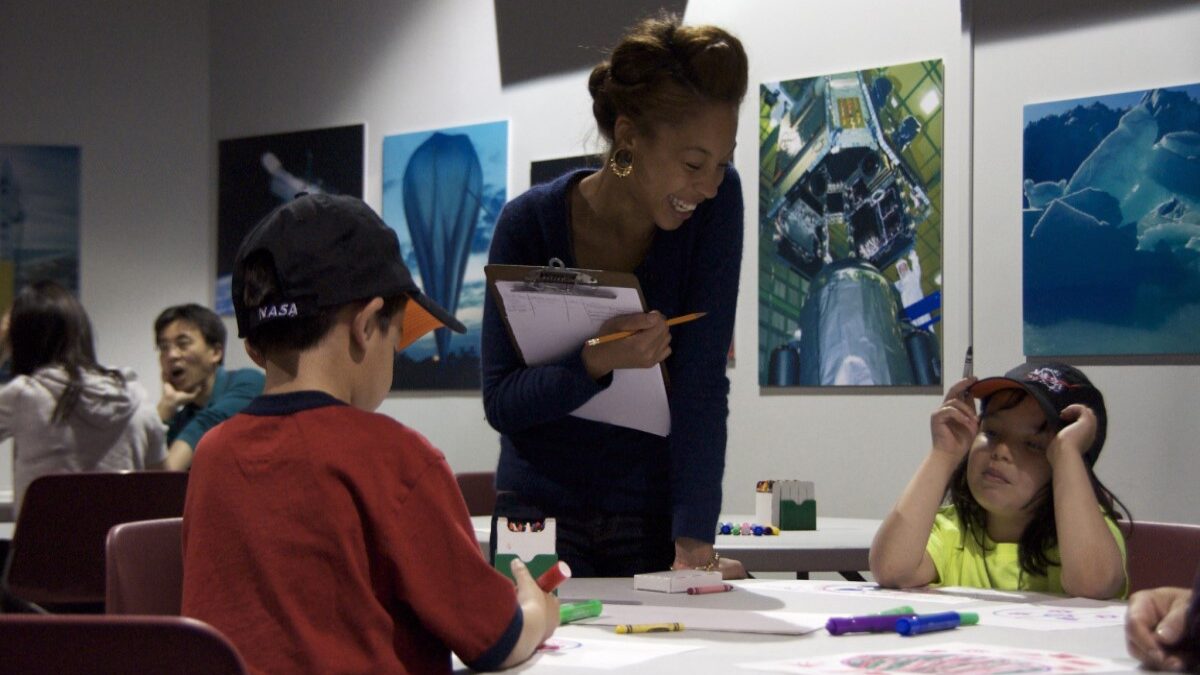
Christianity, part of America’s national heritage, is increasingly contended in public education. Broad arguments have succeeded in wiping out Christian prayers and a decades-old historical pledge in courts across the country. But new legislation in Florida aims to ensure that students may practice Christianity, and any religion, freely this school year and beyond.
A Series of Public School Attacks
What began as isolated incidences in the Sunshine State grew into a string of anti-Christian attacks against students in recent years. A math teacher in Hillsborough County, Florida, a proponent of the LGBT agenda and a lesbian, told a student she couldn’t wear a cross in her classroom because the cross represents a gang symbol, said Anthony Verdugo, founder and executive director of Christian Family Coalition Florida.
“Three years ago, a student named Giovanni Rubeo, an elementary school student at Park Lakes Elementary School in Lauderdale Lakes, was reprimanded by a teacher, taken to the principal’s office and had his parents pulled from work, all for reading a Bible during his free reading time in school,” Verdugo said. “Obviously this teacher felt that her rules overrode the First Amendment.”
There are also cases against prayer in public school in Florida, Verdugo said.
“Through these cases and others, we established there was a need in Florida for the Florida Student and School Personnel Religious Liberties Act to remedy these cases of discrimination,” Verdugo said.
Anti-Religious School Policies On the Rise
“As a school board member, I can tell you that it was much needed clarifying guidance for local policy makers,” said Shawn Frost, Florida Coalition of School Board Members president. “As a conservative, I can tell you that the bias toward secular humanism in our schools is a daily assault on the deeply held religious values of families by administrators that needed to be put in check. The prevailing philosophy is that schools should offer freedom from religion, even when practiced by fellow students.”
“From my perspective, there is a very anti-Christian sentiment in many of our public schools,” said Daniel Diaz. “Teachers are afraid to mention anything related to their faith, so much so that their fear and caution gets passed on to the students as if the students were an extension of the state, because they attend a publicly-funded school. Also, because of the political correctness and sue-happy culture we live in, school districts are doing everything they can to prevent potential lawsuits by passing anti-religious expression policies that limit the students from doing things as simple as reading their bibles during free time, or drawing pictures of biblical figures which they consider heroes.”
“We’ve seen the censorship of speeches of valedictorians and graduation exercises,” said Sen. Dennis Baxley (R-District 12). “We’ve had school personnel told they couldn’t have a Bible on their desk. I think that’s too tight.”
Seeking A Legislative Response to National Trends
Several states have passed or considered the “Religious Viewpoints Anti-Discrimination Act,” now law in Texas, Mississippi, South Carolina and Tennessee. Religious liberty laws are considered strongholds against a trending decrease in religious freedoms in public education.
Passed and signed into law by Gov. Rick Scott (R) in June and effective July 1, the Florida Act states, “A school district may not discriminate against a student, parent, or school personnel on the basis of a religious viewpoint or religious expression…”
“When we prepared to endorse this religious freedom proposal, we studied the issue, one of the things we found was a profound need for religious liberty protections in the state of Florida,” Verdugo said. “We are at the epicenter of the fight for religious liberty in America.”
State Representatives Kimberly Daniels (D-Jacksonville) and Patricia Williams (D-Broward) sponsored House Bill 303, with strong backing from the Christian Family Coalition Florida; Baxley sponsored the companion bill, SB 436, in the Senate.
“We had a number of cases where it has become clear that how religious expression is to be applied in the school environment needs some clarity,” Baxley said. “Expressed by people in the school settings, there has been a chilling effect. Most people feel as though they are not supposed to say anything about their faith or speak in a faith context. I have a strong feeling that the First Amendment allows religious expression and does not stop at a school boundary and I would hope that it would in fact allow for an open exchange of ideas in an education setting. Our students, administrators, educators, parents, deserve some clarity.”
Opposing Religious Freedom In Schools
The CFC recruited speakers, testified before all committees of referral, prepared scripts, submitted testimony, lobbied elected officials, and deployed action alerts in support of the Act. Opponents included administrators and educators across the state, the Anti-Defamation League, Equality Florida, and Secular Humanists.
The first Senate hearing yielded the most challenges.
“We testified at all the committee hearings, there were five of them,” Verdugo said. “At these hearings, the hate, bigotry, intolerance and discrimination were on full display by our opponents as well as from Democratic legislators spewing out twisted logic. You can disagree without being disagreeable, but these are people who were completely ignorant about the issue they were being asked to vote on in their respective committees.”
“Their arguments were that the First Amendment already protected religious expression on campus, and that it would alienate those students in school who were not religious, and who might offend those students that might feel left out when other students pray or express their religious expressions,” Diaz said.
Baxley said he viewed the legislation “as an enabling bill that describes how religious liberty would be viewed on the ground.” The House version was amended during the session, resulting in what Baxley described as a “watered down” version of the bill, one that would not require the Department of Education to create a model policy. But legislators held firm on the original bill language and prevailed, passing with bipartisan support.
“The bill was passed through great courage and tenacity by all,” Verdugo said. “We’re very proud of it.”
Baxley believes most people recognize that those who oppose faith expression in schools have gone too far, and have created “a chilling effect” on students. “I have young people tell me they feel inhibited and that you can’t say Jesus out loud unless you’re cursing,” he said. “My view is that the First Amendment doesn’t protect foul speech, but positive and encouraging speech and for most of us that is what informs our conscience and our sense of right and wrong. I don’t think we want that chilling effect on that expression and I don’t think the constitutional framers wanted it either.”
Legislation With Conviction
“I have a conviction that we spend an awful lot of time teaching the students the how of life and I see a void when it comes to the why of life,” Baxley said. “Faith expressions give us the why of life and what is transpiring is we’re violating that [liberty] and replacing it with secular humanism.”
He added, “There’s always going to be some value system of how we apply knowledge and I think school administrators certainly have due authority over keeping order and minimizing disruptions and I certainly trust them to apply that responsibility in this atmosphere at the same time.”
But Baxley believes faith practices shouldn’t interfere with the educational process, they should enhance it: “I have great empathy for our educators and administrators for managing an environment that can be difficult, but our priority in America should be keeping that liberty alive,” he said. “I had a question on the Senate floor of whether this would open the door for some hate, and I said no—it might actually foster some love.”
This Battle Is Far From Over
Florida legislators passed landmark legislation in protecting religious expression in the state’s public schools. But supporters know the matter is far from closed.
“Different viewpoints will be challenged in court,” Baxley said. “Hopefully reason will prevail and we don’t have too much legislating from the bench and they’ll understand the legislature has the responsibility to provide this clarity. … Value issues don’t take a lot of time but they do take courage because you will have vociferous critics. But I don’t mind having the debate and getting on the floor and being able to explain our understanding of this constitutional freedom is valuable time.”
“Anti-Christian extremists are always looking to undermine our rights so I wouldn’t be surprised if we have to go back to the courts but first, we have to make sure that Florida school boards adopt the FSASPRLA and pursue [that] to make sure Florida counties don’t try to undermine the new law,” Verdugo said.
“Historically liberals were about everyone having a right to speak, but now we’re seeing traditional values getting the hush,”Baxley noted. “… We need diversity of thought, not just different cultures and nationalities and races. America’s a fascinating place where everyone can come together and experience this diversity. We can do it respectfully. We may hear things we don’t relate to or agree with but we don’t tell everybody they can’t speak to that. It’s worth the risk. The liberty is worth the risk.”









